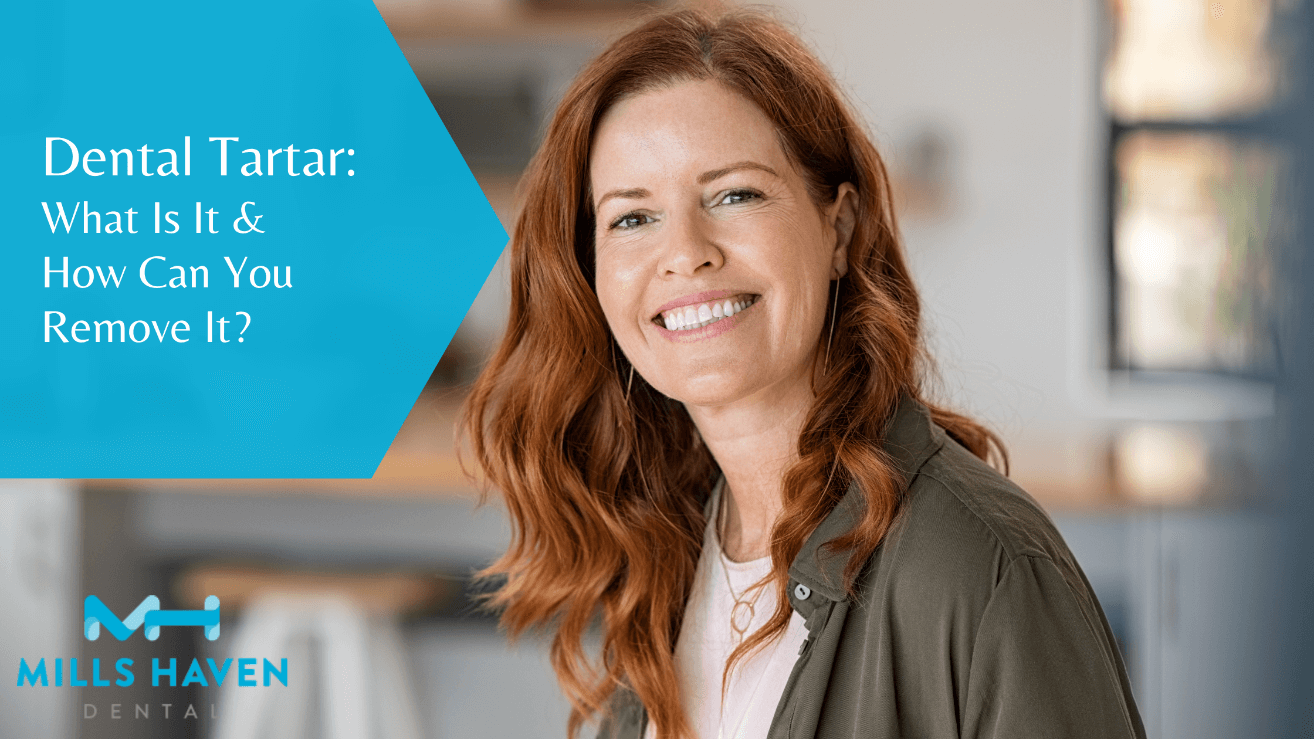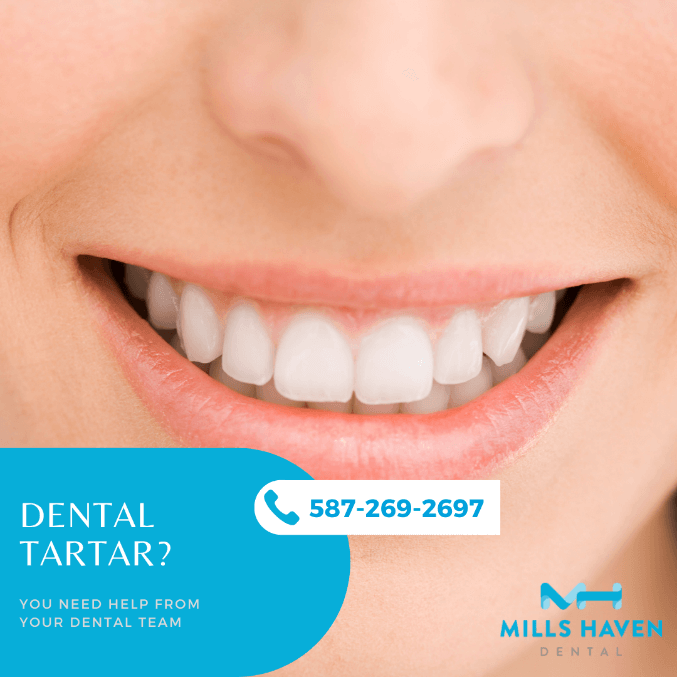Dental Tartar: What Is It and How Can You Remove It?
May 5 2022 by Mills Haven Dental

Many people use the words “plaque” and “tartar” interchangeably, but they’re different things! Well, at least they are different stages of the same thing.
Plaque is a sticky substance that clings to your teeth and gum line. Bacteria loves to attach itself to plaque, which means it isn’t fantastic for your oral health. Luckily, plaque can be easily managed with a brush and floss routine; however, it’s inevitable that you will have some plaque build-up.
Tartar is what plaque turns into when it’s left alone for too long (which is actually just a few hours). The plaque hardens and calcifies, eventually becoming tartar.
Why Is Tartar a Problem?
Tartar is a problem because it clings to your gum line (and even gets underneath it), as well as any dental work (like fillings or braces). This hard material is porous and is a major cause of gum disease.
The good news though is that tartar doesn’t need to be permanent. We have solutions for how you can say “goodbye” to dental tartar.
#1 A Dental Visit

The most effective way, and the way that we recommend, to remove dental tartar is a trip to your dentist.
Your dental team will use a combination of metal tools, called scalers, and pressurized water to chip away tartar. This should only be done by a professional, so don’t try scraping plaque yourself.
They’ll also be able to help you with preventative measures, like finishing with a fluoride polish.
#2 At-Home Solutions
If you would like to take control of tartar before your next dentist visit, we have a few recommendations.
Invest in an Electric Toothbrush
An electric toothbrush can work wonders for preventing tartar build-up and removing already-existing plaque. Electric toothbrushes have been shown to be better at reaching hard-to-reach places. Your brush routine will be more thorough than a manual toothbrush. That being said, make sure you pick a brush that has been approved by the Canadian Dental Association.
Your electric toothbrush will only be effective with a great routine. Use your electric toothbrush twice a day, for 2 minutes each time. Combine that with a good floss session each day and you’re golden.
Find the Right Toothpaste
The hygiene products you use matter. When picking a toothpaste, choose one from a trusted brand that includes fluoride as an ingredient.
Although it might sound appealing, homemade toothpaste usually doesn’t have the plaque-fighting ingredients you need. If you do decide to make your own, make sure to include baking soda.
Adjust Your Diet
Your diet will have a big impact on plaque and tartar impact. Avoid eating really sugary foods, like candy, often. Sugary drinks are especially dangerous because they get trapped in every nook and cranny.
When you do have a craving to satisfy, try brushing and flossing soon after you finish eating or drinking. That will help keep tartar build-up at a minimum.